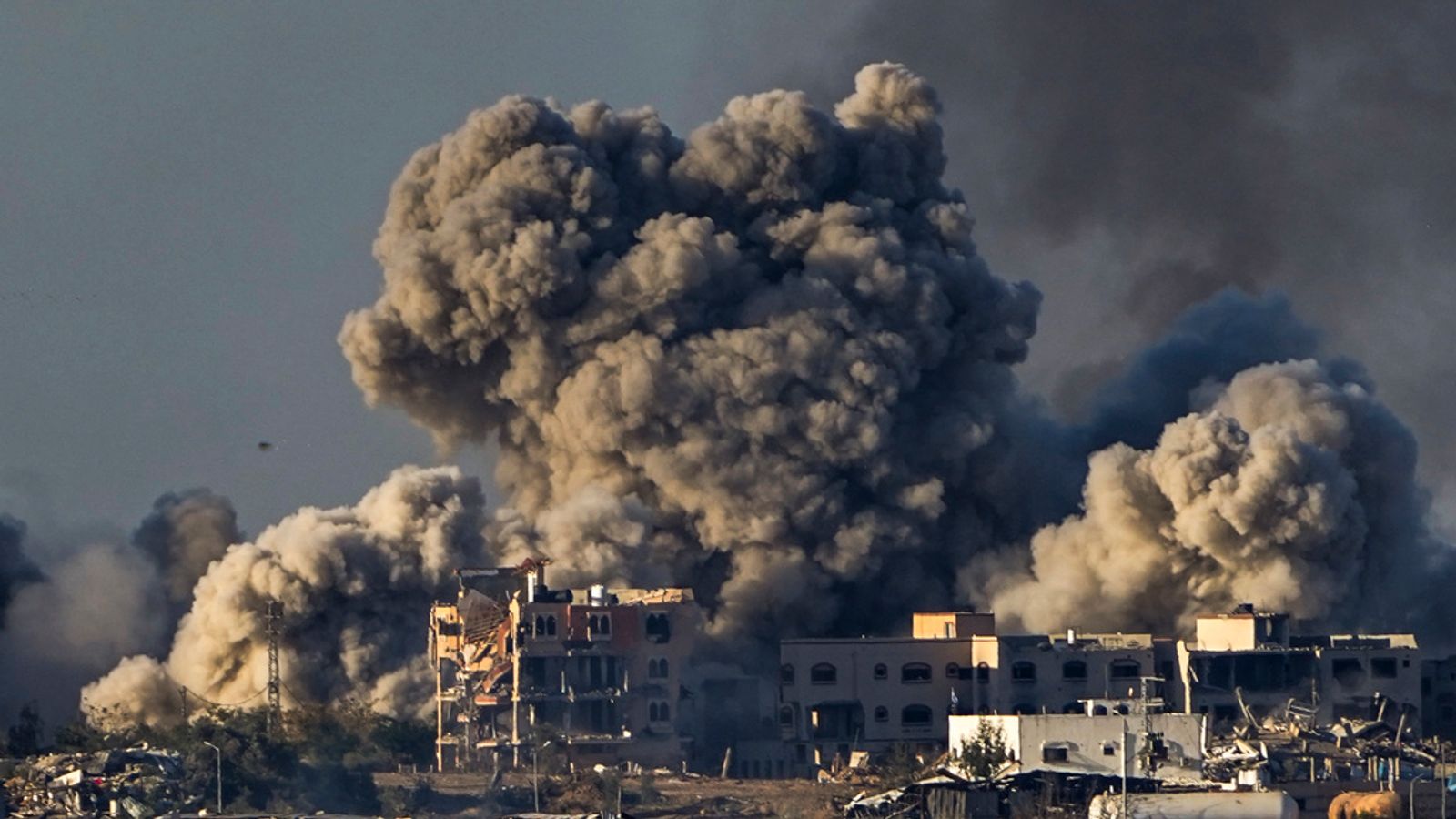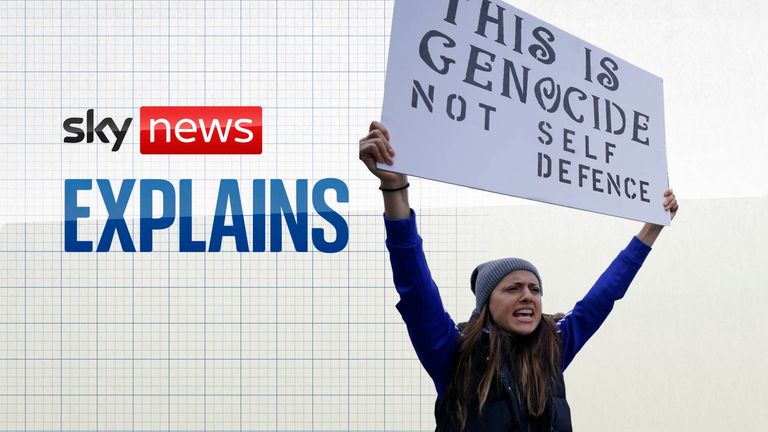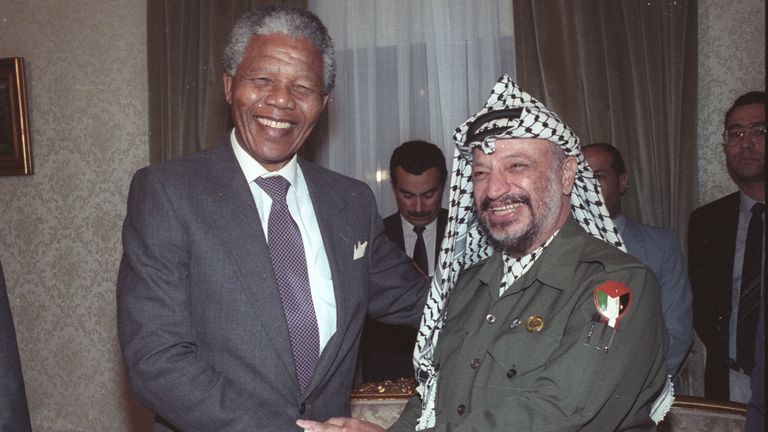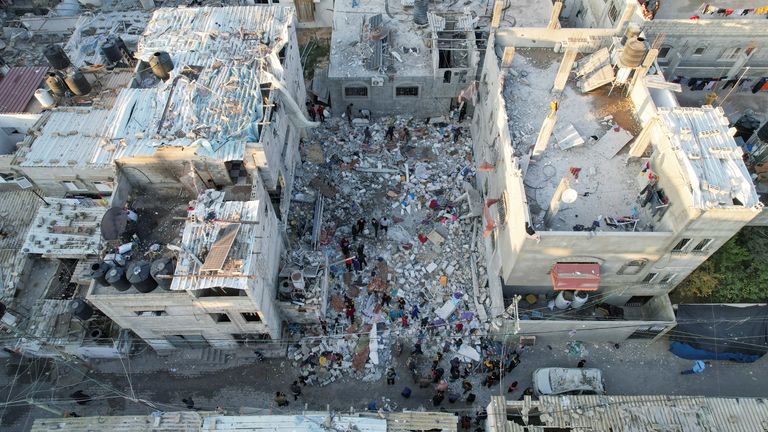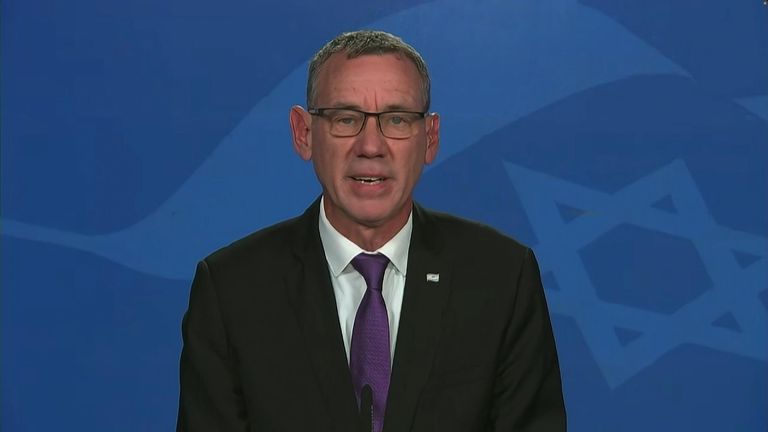Israel is defending itself at the International Court of Justice (ICJ) today against claims it is committing genocide in Gaza.
South Africa filed the case, arguing that Israel is breaching the UN convention on genocide by “killing Palestinians in Gaza, causing them serious bodily and mental harm, and inflicting on them conditions of life calculated to bring about their physical destruction”.
Israel has described the lawsuit as a “despicable and contemptuous exploitation” of the court.
What does genocide mean?
The term genocide was adopted by the UN soon after it was established in 1945, with a specific convention adopted on it in 1948.
According to the charter, genocide “means any of the following acts committed with intent to destroy, in whole or in part, a national, ethnical, racial or religious group”.
Examples include:
• Killing members of a group;
• Causing serious bodily or mental harm to members of the group;
• Deliberately inflicting on the group conditions of life calculated to bring about its physical destruction in whole or in part;
• Imposing measures intended to prevent births within the group;
• Forcibly transferring children of the group to another group.
It was set up in wake of the Holocaust, in which the Nazis killed approximately six million Jewish people between 1941 and 1945, as part of the international community’s commitment to “never again”.
Since its inception there have only been three proven cases of genocide under the UN definition: the Khmer Rouge killing of Cambodian minority groups in the 1970s; the Srebrenica Massacre of Muslims in Bosnia in 1995; and the killing of Tutsis in Rwanda in 1994.
What is South Africa claiming – and why?
An 84-page court document sets out South Africa’s case, which states that Israel’s “acts… in the wake of the attacks on 7 October 2023… are genocidal in character”.
It claims this is because they are “intended to bring about the destruction of a substantial part of the Palestinian national, racial and ethnical group, that being the part of the Palestinian group in the Gaza Strip”.
South Africa says Israel is “failing to prevent genocide and is committing genocide” in its war with Hamas.
In the court documents, lodged on 29 December, it also acknowledges “direct targeting of Israeli civilians and other nationals and hostage-taking by Hamas” on and after 7 October, which may breach international law.
As both South Africa and Israel are signatories to the 1948 convention, it argues the court has jurisdiction to stop Israel’s military offensive killing Palestinians in Gaza.
It also compares Israeli occupation of Palestinian territories to its own Apartheid period.
South Africa has a longstanding affinity with the Palestinian people.
After Nelson Mandela was freed from prison and became South African president, he said: “We know too well that our freedom is incomplete without the freedom of the Palestinians”, and later wore a traditional keffiyeh to a pan-African event in Algeria in 1990.
Current South African President Cyril Ramaphosa has condemned Israel’s offensive in Gaza from the start.
How has Israel responded?
Historically, Israel has refused to engage with international tribunals, but is sending a legal team to defend itself at The Hague this time.
It has described South Africa as “hypocritical” and the lawsuit as a “blood libel” – a term used for antisemitic false allegations against Jewish people that originates from the Middle Ages.
What have Israel and Hamas said about the war?
Hamas fighters and other militant Palestinian groups killed 1,200 Israelis on 7 October, the Israel Defence Forces (IDF) say. Some 240 were abducted and taken into Gaza, with 132 still missing.
The Israeli military military says more than 180 of its soldiers have died fighting in Gaza so far.
According to the Hamas-run Palestinian health ministry, nearly 23,000 Palestinians have been killed in Israeli attacks since the conflict started.
Nearly all of the 2.3 million population of Gaza have been displaced by heavy bombing.
In its founding charter in 1988, Hamas declared there is “no solution for the Palestine question except through Jihad”, adding: “The day of judgement will not come about until Muslims fight Jews and kill them”.
But in 2017 it changed the charter to reflect that “its conflict is with the Zionist project, not with the Jews because of their religion”.
Individual Hamas leaders however, such as Mahmoud Zahar, have claimed the killing of Israeli children has been “legitimised” by the killing of Palestinian infants by Israel.
Read more:
Israeli president criticises genocide lawsuit
Police accidentally kill young girl at West Bank checkpoint
At the beginning of the conflict, an Israeli military official declared: “We are imposing a complete siege on Gaza. There will be no electricity, no food, no water, no fuel. Everything will be closed. We are fighting human animals and we act accordingly.”
Prime Minister Benjamin Netanyahu has said “Hamas must be destroyed” – but has not referenced Palestinians or the people of Gaza.
What could happen next?
The ICJ has the power to issue “provisional measures” – legally-binding court orders – that would last for the duration of the case.
South Africa wants it to use them to “immediately suspend military operations in and against Gaza”.
Although they are legally binding, they are not always adhered to.
For example, a joint case against Russia’s invasion of Ukraine in 2022 resulted in provisional measures for Moscow to withdraw troops, but these were ignored by the Kremlin.
Like others before it, the case is likely to last for years, as proving “intent” to commit genocidal acts is a difficult and lengthy process.
Alexander Horne, a barrister and visiting law professor at Durham University, who is also a dual British-Israeli national, said Israel will be “determined to demonstrate its armed forces have acted both morally and proportionately following the horrendous events of 7 October”.
He added that its choice of supreme court judge Aharon Barak as its representative suggests it is taking the case “very seriously”.
If the court does impose provisional measures it would be “hugely problematic” for the Israeli offensive, which it has vowed will continue until all hostages are returned, he said.
